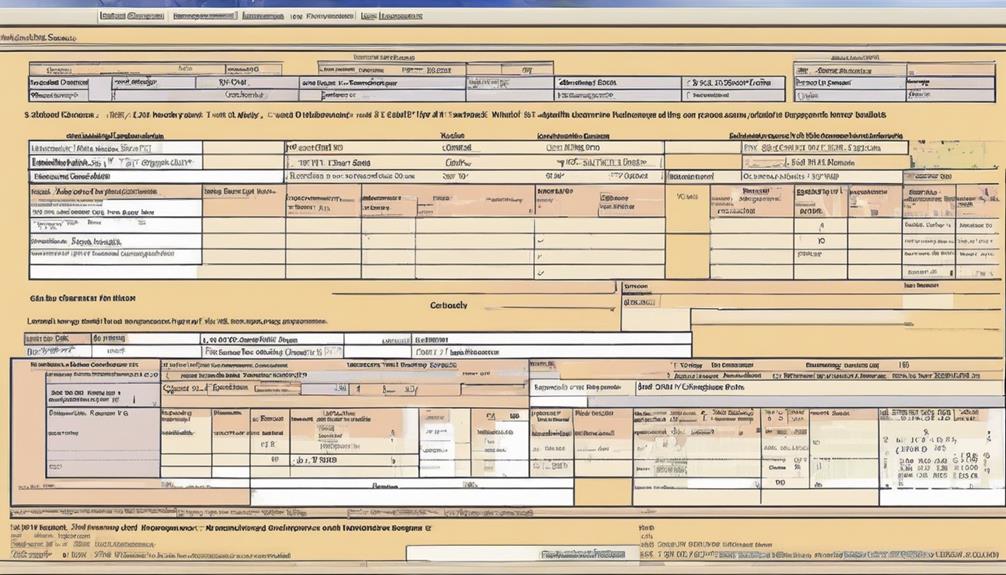To collect unpaid child support arrears, enforcement agencies use various tools like wage garnishments, bank levies, and licensing suspensions. Modern technology helps track payments and identify noncustodial parents who fall behind. Strengthening enforcement efforts, offering employment assistance, and implementing legal reforms also improve collection rates. While challenges remain, exploring these strategies can make a difference. Keep going to discover how innovative solutions and international practices can make enforcement more effective.
Key Takeaways
- Strengthen enforcement strategies using technology, data analytics, and legal reforms to improve collection rates.
- Implement employment and training programs to help noncustodial parents secure stable income for consistent payments.
- Utilize digital platforms to streamline payment tracking, reduce delays, and automate collection processes.
- Address systemic barriers like bureaucratic delays and legal complexities that hinder timely collection of arrears.
- Promote public awareness and international cooperation to share best practices and enhance enforcement effectiveness.

Unpaid child support arrears represent a significant challenge in the United States, totaling around $116 billion and affecting roughly a quarter of all children nationwide. If you’re involved in child support cases, you’ll quickly see how complex and persistent this issue can be. Child support is a legal obligation set by court orders or informal agreements, and when payments are missed or unpaid, the consequences ripple through families and communities. For custodial parents, unpaid arrears create financial instability, making it difficult to meet basic needs like housing, food, and healthcare for their children. Meanwhile, noncustodial parents often face legal and financial hurdles that hinder their ability to fulfill their obligations.
Unpaid child support arrears cause financial instability for families and pose systemic enforcement challenges nationwide.
A big part of the problem lies in the system’s enforcement mechanisms. Over 90% of arrears stem from TANF reimbursement, which means that a large portion of unpaid support is linked to temporary assistance programs. Some states, like Louisiana, even charge interest on unpaid arrears—up to 12% compounded annually—adding to the burden. However, enforcement isn’t always effective. Many noncustodial parents encounter difficulties due to economic challenges, such as job loss or financial hardship, which prevent consistent payments. Systemic issues, including bureaucratic delays and inefficient collection processes, further exacerbate the problem. Legal barriers, like complex procedures or lengthy court processes, can slow down or deter efforts to collect arrears, leaving many unpaid balances unresolved.
Addressing unpaid child support arrears requires a multifaceted approach. Strengthening enforcement strategies can make a big difference, especially if combined with employment and training programs that help noncustodial parents find stable jobs. When parents have steady income, they’re more likely to meet their obligations. Modern technology offers promising solutions, too. Digital platforms can streamline payment tracking, automate collection processes, and reduce bureaucratic delays. Using data analytics can help enforcement agencies identify trends, target high-risk cases, and improve overall collection strategies. Additionally, technological innovations can play a crucial role in improving compliance and reducing collection costs, making enforcement more efficient and effective. Raising public awareness about the importance of child support and legal reforms that simplify payment processes can also boost compliance. Child support enforcement is a crucial aspect of ensuring that children’s needs are met and that parents fulfill their legal responsibilities.
International comparisons reveal that the scale of unpaid arrears varies globally. In the UK, for example, the Child Maintenance Service manages hundreds of thousands of arrangements with a compliance rate of about 72%. While the UK’s problem is more contained, the U.S. faces a larger, more complex challenge due to its size and systemic issues. International cooperation and sharing best practices could help develop more effective solutions. In the end, tackling unpaid child support arrears requires a combination of enforcement, technological innovation, legal reform, and social support to ensure that children’s needs are prioritized and that parents are held accountable in fair, efficient ways.
Frequently Asked Questions
Can Unpaid Child Support Affect My Credit Score?
Yes, unpaid child support can lower your credit score. When you miss payments, they get reported to credit bureaus, creating negative marks on your report. The longer you stay unpaid, the more your score drops, making it harder to get loans or credit in the future. These reports can stay for up to seven years, so addressing arrears promptly is essential to protect your financial health.
Is There a Statute of Limitations on Collecting Child Support Arrears?
In many states, there’s no statute of limitations on collecting child support arrears, meaning you can be pursued indefinitely. Unlike other debts that expire, unpaid support remains enforceable, and actions like wage garnishments or liens can continue regardless of time. So, even if years pass, the child support debt doesn’t disappear — it stays active, with enforcement options available whenever needed.
Can Unpaid Arrears Lead to Jail Time for the Non-Paying Parent?
Yes, unpaid arrears can lead to jail time. If you ignore court orders or fail to pay, the court may impose contempt charges, which can result in fines or jail sentences. In some cases, especially if arrears are substantial or past due for a long period, you could face criminal charges, including felony charges for large debts. The court typically considers other enforcement options first but can jail you if necessary.
Are There Programs to Help Parents Recover Unpaid Child Support?
You can tap into several programs designed to help parents recover unpaid child support. For example, Georgia’s Fatherhood Program offers education, job training, and support services, while the District of Columbia’s Fresh Start Program forgives arrears in exchange for consistent payments. Michigan’s Arrears Cap and Lump-Sum Payments act like a financial reset, allowing you to reduce or forgive debts through responsible repayment efforts.
How Does Child Support Enforcement Vary by State?
Child support enforcement varies by state through different enforcement tools and procedures. You’ll find some states using judicial processes while others rely on administrative actions like license suspensions or tax intercepts. Enforcement automation and support programs also differ, affecting how quickly and effectively noncustodial parents are located and compelled to pay. Additionally, each state uses unique guidelines and payment allocations, influencing how much support reaches families and how arrears are managed.
Conclusion
Even if collecting unpaid child support feels overwhelming, remember it’s about ensuring your child’s well-being. It’s natural to worry about strained relationships or enforcement challenges, but taking action shows your commitment. Standing firm now helps secure your child’s future and peace of mind. Don’t let doubts hold you back—your effort can make a lasting difference. By pursuing what’s owed, you’re advocating for your child’s right to support and stability.










